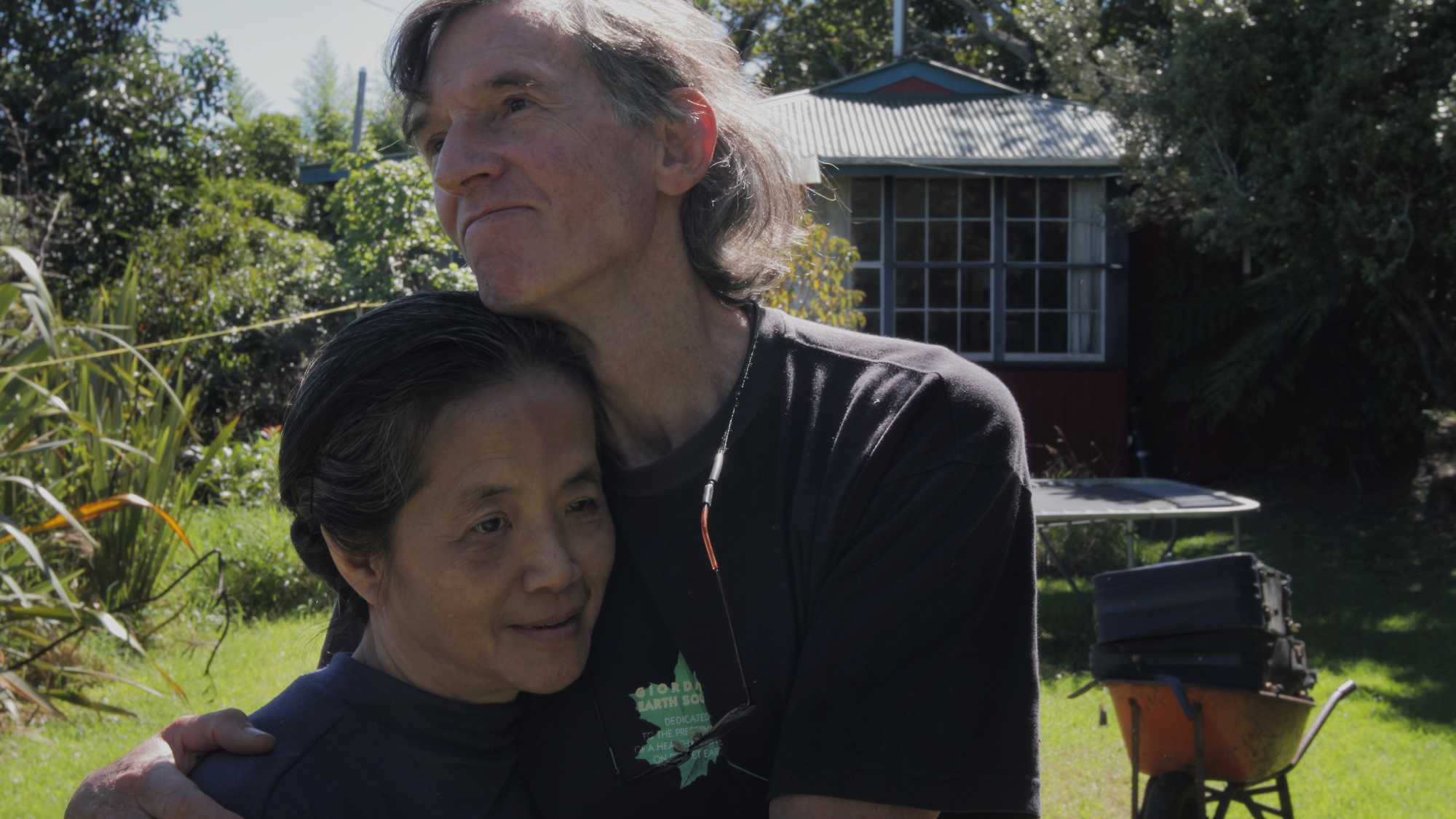An intimately observed drama of change in the lives of a deeply attached couple in their 60s caught between his world (an island in the Hauraki Gulf), hers (a city in China), and the world they have made together – their red house in the bush.

Is home the place you are from, or what you carry inside you wherever you go?
Screened as part of NZIFF 2012
The Red House 2012
The Red House is an intimately observed drama of change in the lives of a deeply attached couple in their 60s. Lee (Lee Stuart) is a seasoned activist, still applying his highlighter to the nasty hooks in local planning documents. Jia (Meng Jia) was a refugee from post-Tiananmen China when they met 20 years ago, barely understanding a word of each other’s languages. Now duty calls Jia back to China and her aged parents, who still live in the tiny apartment she grew up in, deep within a city that’s changed many times over since she left. We travel with the couple between his world (an island in the Hauraki Gulf), this city of hers, and the world they have made together – their red house in the bush, crammed full of books and mementoes.
“Our understanding does not come in words,” says Lee, and the film catches a tender, mutual puzzlement that makes their enduring connection seem a very fresh one. Their love story resonates with questions about the fluid ways in which we individuals might become defined by our partners, our environments and the nests we make for ourselves. Director Alyx Duncan’s short films have embraced documentary, experimental film, dance and narrative with assurance and unforced ingenuity. Her recognition of the complexity of visual culture is apparent in every frame of this lovely first feature. Her formal sophistication has always served a fundamental curiosity about human life and society, never more reverberant than here: she is working with her non-actor parents in the two key roles. The limpid evocation of existential mysteries that she achieves is itself a thing of quiet wonder.